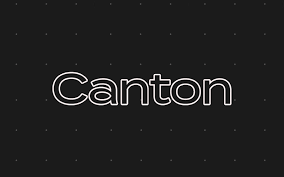Blockchain in Action- Major Financial Institutions Test Tokenized Assets on Canton Network

There has been a marked increase in interest in blockchain technology in recent times, particularly for its potential to streamline processes and improve efficiency. Here is a closer look at the recent large-scale pilot test conducted by Digital Asset, a leading provider of enterprise blockchain solutions.
Canton Network- A Collaborative Effort
Digital Asset’s Canton Network is a permission-based blockchain specifically designed for institutional investors. Unlike public blockchains like Bitcoin, access to the Canton Network is restricted and controlled, allowing for a tailored environment for financial institutions.
The Pilot Program- Testing Tokenization
The pilot program involved a significant collaboration between various financial heavyweights. Here are the pertinent details of the program:
- Participants- 15 asset managers, 13 banks, 4 custodians, 3 exchanges, and prominent names like Goldman Sachs, BNY Mellon, and Paxos.
Institution |
Sector |
| Goldman Sachs | Investment Banking |
| BNY Mellon | Asset Management |
| Cboe Global Markets | Stock Exchange |
| Paxos Trust | Stablecoin Issuer |
| Deloitte | Consulting |
| Deutsche Börse | Stock Exchange |
| Microsoft | Technology Provider |
| Moody’s | Credit Rating Agency |
| S&P Global | Financial Information Services |
- Transactions- Over 350 simulated transactions were executed across various areas, such as:
- Tokenized assets- Representing traditional financial assets like bonds or stocks on a blockchain platform.
- Fund registry- Maintaining a secure record of ownership and investment details within a fund.
- Digital cash- Enabling instant and secure digital payments.
- Repo– Short-term loans secured by financial instruments.
- Securities lending– Allowing temporary transfer of ownership of securities.
- Margin management- Monitoring and managing the collateral required for leveraged positions.
Key Findings and Potential Benefits
- Smooth transactions- The pilot successfully demonstrated the ability to conduct transactions involving tokenized assets across various applications within the network.
- Reduced risk– The network’s architecture reduces counterparty risk (risk of default by the other party in a transaction) and settlement risk (risk of failed transactions due to delays).
- Improved efficiency- The use of blockchain technology can potentially streamline processes and optimize capital allocation.
- Intraday margin management- The network facilitates real-time margin management, which is crucial for managing leveraged positions.
Expanding the Scope of the Program
Since its inception, the Canton Network has grown considerably, with over 155 participants from 45 major organizations joining the network. In addition, the network has facilitated the settlement of real-world assets across 22 different permissioned blockchains.
The network also allows connection to various decentralized applications (dApps) built for specific purposes like fund registry, trading, and collateral management.
The Growing Trend of Tokenization
The trend of tokenization, i.e., the process of converting traditional assets into digital tokens on a blockchain, is gaining significant traction. This pilot program signifies the growing interest from institutional investors and financial institutions in exploring the potential of blockchain technology for:
- Increased efficiency through streamlining processes and reducing operational costs.
- Enhanced security by leveraging the inherent security features of blockchain technology.
- New investment opportunities in the form of enabling the creation of innovative financial products and services.
Future Outlook
The successful pilot program on the Canton Network exhibits the potential of blockchain technology to revolutionize the financial landscape. As the technology matures and regulations evolve, we can expect further adoption and innovation in this space.
https://cointelegraph.com/news/global-banks-participate-large-scale-blockchain-pilot-test





